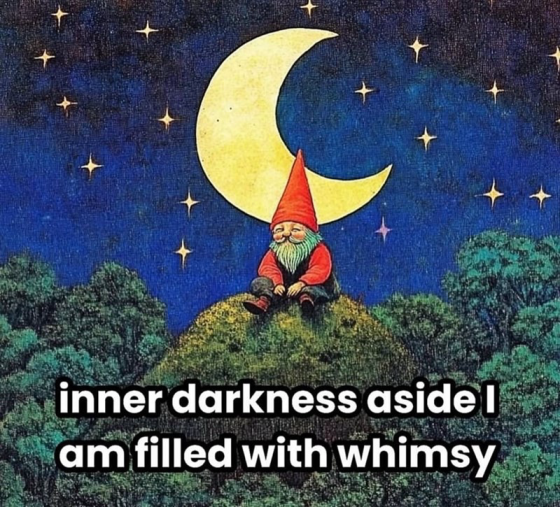2025.11.09
I'm still looking or an outlook or methods that let me lean into the mild, sustainable contentment that comes naturally to me, but without shaving off so much of the spikes of delight, and making a truce with worry as a vital propulsive force, so long as it doesn't become intrusive. To do that Buddhist-ish thing of being attached to the world that is rather than the one I want, and enjoy a sense of unity without having to be anxious about the outcomes for so much of it.
Ecclesiastes 8:15 says, 'Then I commended mirth, because a man hath no better thing under the sun, than to eat, and to drink, and to be merry.' Isaiah 22:13 says, 'Let us eat and drink; for tomorrow we shall die.'
The answer, he explains, is that combinations and arrangements of atoms can take on qualities they do not possess individually. He employs the analogy of letters and words. The 26 letters of the Roman alphabet can be combined into at least 100,000 meaningful words of the English language. Some linguists maintain that there are up to 1,000,000 words in English, though nobody's vocabulary could have that breadth. And from even 100,000 words, millions of intelligible, grammatically correct sentences, expressing millions of thoughts and experiences and observations can be formed. Sentences have 'emergent' qualities that the letters and spaces composing them do not possess. They can be gentle or inflammatory. Unlike individual letters, they can communicate information, persuade, mislead, enable actions or start a riot. In an analogous way, Lucretius suggested, starting with combinations of 'primitive' elements with only a few properties, everything in the noisy, colourful world of experience can be produced.The alphabet thing is an interesting take on "emergence".
Why do you bemoan and beweep death? If your past life has been a boon, and if not all your blessings have flowed straight through you and run to waste like water poured into a riddled vessel... why, you fool, do you not retire from the feast of life like a satisfied guest?
Jeremy Bentham, a 19th-century Epicurean philosopher, famously described rights as 'nonsense on stilts'.
To exist in a market economy is to live a double tragedy, beginning in inadequacy and ending in desperation.
Where wonder is concerned, what Epicurus calls 'piety' – which can take the form of a feeling of gratitude for the world's existence and for my existence in it – is not irrational, even if there is no one to be grateful to.

Our president can't tell an Onion-like satire article from reality.
Also he's easily manipulated by Fox News (by some coincidence he gets all hot and bothered about Nigeria the day after a slanted FOX piece on the situation.)
